第103章 CHAPTER XVII ECHOES OF THE RUSSIAN REVOLUTION(1)
The residents of Hull-House have always seen many evidences of the Russian Revolution; a forlorn family of little children whose parents have been massacred at Kishinev are received and supported by their relatives in our Chicago neighborhood; or a Russian woman, her face streaming with tears of indignation and pity, asks you to look at the scarred back of her sister, a young girl, who has escaped with her life from the whips of the Cossack soldiers; or a studious young woman suddenly disappears from the Hull-House classes because she has returned to Kiev to be near her brother while he is in prison, that she may earn money for the nourishing food which alone will keep him from contracting tuberculosis; or we attend a protest meeting against the newest outrages of the Russian government in which the speeches are interrupted by the groans of those whose sons have been sacrificed and by the hisses of others who cannot repress their indignation. At such moments an American is acutely conscious of our ignorance of this greatest tragedy of modern times, and at our indifference to the waste of perhaps the noblest human material among our contemporaries. Certain it is, as the distinguished Russian revolutionists have come to Chicago, they have impressed me, as no one else ever has done, as belonging to that noble company of martyrs who have ever and again poured forth blood that human progress might be advanced. Sometimes these men and women have addressed audiences gathered quite outside the Russian colony and have filled to overflowing Chicago's largest halls with American citizens deeply touched by this message of martyrdom. One significant meeting was addressed by a member of the Russian Duma and by one of Russia's oldest and sanest revolutionists; another by Madame Breshkovsky, who later languished a prisoner in the fortress of St. Peter and St. Paul.
In this wonderful procession of revolutionists, Prince Kropotkin, or, as he prefers to be called, Peter Kropotkin, was doubtless the most distinguished. When he came to America to lecture, he was heard throughout the country with great interest and respect; that he was a guest of Hull-House during his stay in Chicago attracted little attention at the time, but two years later, when the assassination of President McKinley occurred, the visit of this kindly scholar, who had always called himself an "anarchist" and had certainly written fiery tracts in his younger manhood, was made the basis of an attack upon Hull-House by a daily newspaper, which ignored the fact that while Prince Kropotkin had addressed the Chicago Arts and Crafts Society at Hull-House, giving a digest of his remarkable book on "Fields, Factories, and Workshops," he had also spoken at the State Universities of Illinois and Wisconsin and before the leading literary and scientific societies of Chicago. These institutions and societies were not, therefore, called anarchistic. Hull-House had doubtless laid itself open to this attack through an incident connected with the imprisonment of the editor on an anarchistic paper, who was arrested in Chicago immediately after the assassination of President McKinley. In the excitement following the national calamity and the avowal by the assassin of the influence of the anarchistic lecture to which he had listened, arrests were made in Chicago of every one suspected of anarchy, in the belief that a widespread plot would be uncovered. The editor's house was searched for incriminating literature, his wife and daughter taken to a police station, and his son and himself, with several other suspected anarchists, were placed in the disused cells in the basement of the city hall.